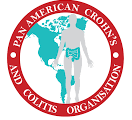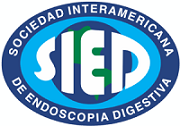Impact of the COVID-19 pandemic in the time to endoscopy in patients with upper gastrointestinal bleeding
DOI:
https://doi.org/10.47892/rgp.2020.403.1120Palabras clave:
Pandemias, Hemorragia gastrointestinal, Endoscopía, Tiempo de tratamientoResumen
Introduction: During the COVID-19 pandemic, endoscopic procedures are associated with a high risk of SARS-CoV-2 infection. However, in cases of upper gastrointestinal bleeding (UGIB), priority should be given to an early endoscopy. Objective: The main objective was to compare the time since arrival at the hospital and the performance of the endoscopy between both groups. Materials and methods: We performed a retrospective study. Data contains information of patients who attended to the hospital with UGIB and underwent an endoscopy between October 19th, 2019 and June 6th, 2020. Patients were divided into 2 phases: pre-pandemic and pandemic. The time between arrival at the hospital and the performance of the endoscopy in both phases were compared as well as other indicators such hospital stay and in-hospital mortality. Results: With information from 219 patients, the median age was 69 years. 154 and 65 endoscopies were performed in pre-pandemic and pandemic phase, respectively. The time between arrival at the hospital and the performance of the endoscopy was significantly longer during
the pandemic (10.00 vs. 13.08 hours, p-value = 0.019). Nevertheless, there were no significant differences in hospital stay or mortality. Conclusion: The management of patients with UGIB during the COVID-19 pandemic is complex and requires the application of clinical judgment to decide the best timing to perform an endoscopy without affecting patient care.
Descargas
Métricas
Descargas
Publicado
Cómo citar
Número
Sección
Licencia
Revista de Gastroenterología del Perú by Sociedad Peruana de Gastroenterología del Perú is licensed under a Licencia Creative Commons Atribución 4.0 Internacional..
Aquellos autores/as que tengan publicaciones con esta revista, aceptan los términos siguientes:
- Los autores/as conservarán sus derechos de autor y garantizarán a la revista el derecho de primera publicación de su obra, el cuál estará simultáneamente sujeto a la Licencia de reconocimiento de Creative Commons que permite a terceros compartir la obra siempre que se indique su autor y su primera publicación esta revista.
- Los autores/as podrán adoptar otros acuerdos de licencia no exclusiva de distribución de la versión de la obra publicada (p. ej.: depositarla en un archivo telemático institucional o publicarla en un volumen monográfico) siempre que se indique la publicación inicial en esta revista.
- Se permite y recomienda a los autores/as difundir su obra a través de Internet (p. ej.: en archivos telemáticos institucionales o en su página web) antes y durante el proceso de envío, lo cual puede producir intercambios interesantes y aumentar las citas de la obra publicada. (Véase El efecto del acceso abierto).




















 2022
2022 